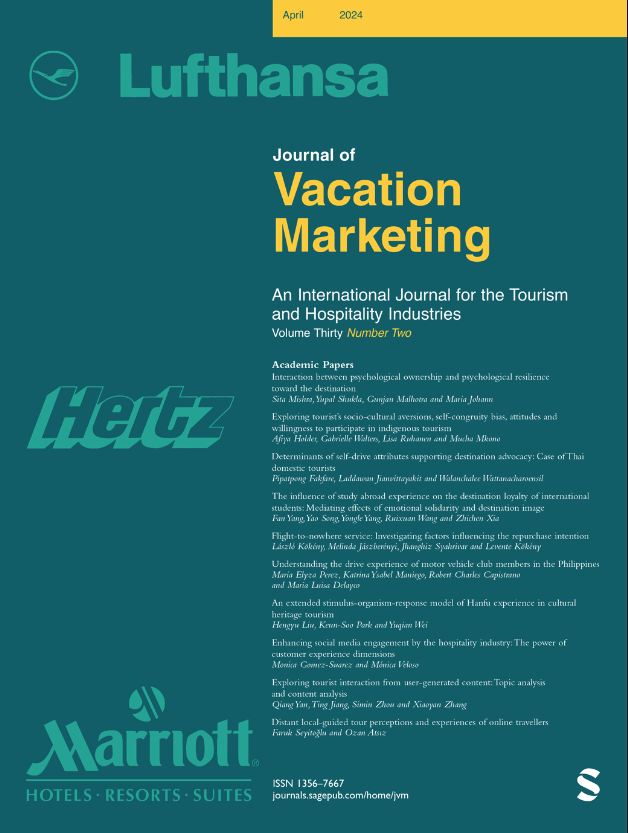The effects of hotels’ environmental sustainability communication strategies on social Media engagement and brand advocacy: The roles of communication characteristics and customers’ personality traits
IF 4.5
3区 管理学
Q1 BUSINESS
引用次数: 0
Abstract
Prior research has overlooked the significance of two distinct communication strategies used by hotels over social media platforms to foster environmental sustainability (ES), namely informative communication strategy (ICS) and engaging communication strategy (ECS). Understanding the role of these communication strategies in cultivating social media engagement (SME) with sustainability content, and deciphering the conditions that govern these relationships have yet to be addressed. The current study endeavors to fill these research voids. First, it investigates the effects of ICS and ECS on SME with sustainability content. Second, it examines the moderating effects of two key communication characteristics (perceived intensity and perceived transparency) and two customers’ personality traits (conscientiousness and extraversion) in the investigated relationships. Finally, it establishes the potential role of sustainability-oriented SME in generating online brand advocacy. Data from Japan-based online panelists were analyzed using AMOS 28. The results generally lend support to the study's hypothesized relationships. ICS and ECS are equally important in driving SME. Their effects are positively moderated by the intensity and transparency of the ES communication as well as by customers’ conscientiousness and extraversion. SME is positively associated with online brand advocacy. The article discusses the implications of the findings, and closes with the study's limitations and directions for future research.酒店环境可持续发展传播战略对社交媒体参与和品牌宣传的影响:传播特征和顾客个性特征的作用
以往的研究忽视了酒店在社交媒体平台上为促进环境可持续性(ES)而使用的两种不同传播策略的重要性,即信息传播策略(ICS)和参与传播策略(ECS)。了解这些传播策略在培养社交媒体参与(SME)可持续发展内容方面的作用,以及解读支配这些关系的条件,这些问题都有待解决。本研究致力于填补这些研究空白。首先,本研究调查了综合传播战略(ICS)和电子传播战略(ECS)对可持续发展内容的中小企业的影响。其次,研究了两个关键传播特征(感知强度和感知透明度)和两个客户个性特征(自觉性和外向性)在所调查关系中的调节作用。最后,它确定了以可持续发展为导向的中小企业在产生在线品牌拥护方面的潜在作用。研究使用 AMOS 28 分析了来自日本在线小组成员的数据。结果总体上支持研究假设的关系。在推动中小企业发展方面,ICS 和 ECS 同样重要。ES传播的强度和透明度以及客户的自觉性和外向性会对它们的影响产生积极的调节作用。中小型企业与在线品牌宣传呈正相关。文章讨论了研究结果的意义,最后提出了研究的局限性和未来研究的方向。
本文章由计算机程序翻译,如有差异,请以英文原文为准。
求助全文
约1分钟内获得全文
求助全文
来源期刊

Journal of Vacation Marketing
Multiple-
CiteScore
9.70
自引率
15.70%
发文量
54
期刊介绍:
Journal of Vacation Marketing is a fully peer reviewed international journal that publishes original research and review articles on topics relating to the marketing of destinations and businesses/organisations involved in the wider tourism, hospitality and events industries. Its objective is to provide a forum for the publication of refereed academic papers and reviewed practitioner papers which are of direct relevance to industry, while meeting the highest standards of intellectual rigour.
 求助内容:
求助内容: 应助结果提醒方式:
应助结果提醒方式:


